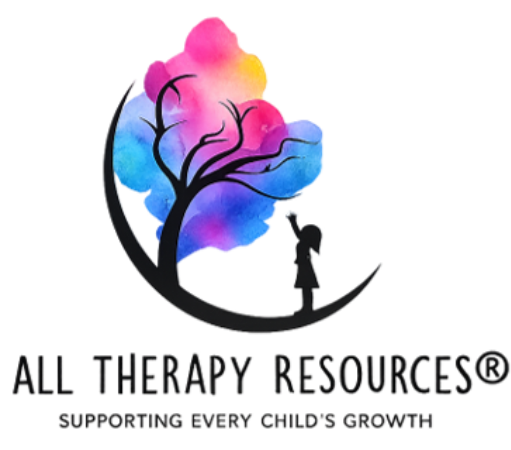
In the bustling halls of schools, where the tide of emotions runs high, mastering the art of emotion regulation is akin to finding a compass in uncharted waters. It’s essential, not just for academic success, but for personal growth and well-being too.
This blog post is your guide to understanding the pivotal role school counselors play in teaching students the art of managing their emotions. Plus…how, by doing so, they lay the groundwork for resilient, emotionally intelligent young adults.

The Role of Emotion Regulation
First off, let’s tackle the big question: What exactly is emotion regulation?
Simply put, it’s the ability to manage and respond to an emotional experience in a healthy, constructive way. It’s about recognizing when you’re feeling angry, sad, anxious, or overly excited. It is also about knowing how to calm those feelings to react appropriately to different situations.
In the school setting, emotion regulation is the secret sauce to navigating everything from exam stress and friendship woes to the highs and lows of everyday adolescent life. It’s about turning “I can’t handle this!” into “I’ve got this, one step at a time.”
Why Emotional Regulation Matters in School Counseling
School counselors are the unsung heroes in this narrative. They’re not just there to guide students academically but also to support their emotional and social development. Through one-on-one sessions, group workshops, and even classroom lessons, counselors equip students with the tools they need to manage their emotions effectively.
But why is this so crucial?
Because students who master emotion regulation are better learners. They’re more focused, more engaged, and more resilient in the face of challenges. They navigate social situations with greater ease and have stronger relationships. In short, they’re better equipped for the world both inside and outside the school walls.
“Feeling like you’re in a bit of a tangle with what you can and can’t control? We’ve all been there. Our ‘What is IN MY CONTROL vs. OUT OF MY CONTROL’ Counseling Mini-Lesson is like a flashlight in the fog, helping students (and hey, maybe even us adults) figure out what we can really change and what’s better left as is. Great for sparking meaningful conversations and building resilience. Ready to shine a light on control and let go of the stress? Click here to grab this gem!

Strategies for Mastering Emotion Regulation
So, how do we teach students to become masters of their emotions? Here are some tried and tested strategies school counselors often employ:
- Understanding Emotions: It all starts with awareness. Counselors help students identify and name their emotions, understanding that it’s okay to feel them.
- Breathing and Relaxation Techniques: Simple yet powerful, these techniques can help calm the storm in moments of heightened emotion.
- Cognitive Reframing: This involves helping students change the way they think about a situation, which, in turn, can change how they feel about it.
- Problem-Solving Skills: Sometimes, emotions are a signal that something needs to change. Counselors teach students how to identify the problem and find constructive solutions.
- Journaling and Expressive Writing: Writing down thoughts and feelings can be a therapeutic way to process emotions and gain perspective.
- Mindfulness and Meditation: These practices help students stay present and grounded, reducing anxiety and stress.
Are your students or kids on a rollercoaster of emotions? We’ve got just the ticket to smoother rides. Check out our ‘My Emotions Self-Care Workbook‘. It’s like a treasure map leading to understanding feelings and finding cool ways to deal with them. Perfect for the classroom or cozy learning nooks at home. Ready to help your kiddos become emotion-savvy explorers? Take a peek here and let the adventure begin!”

The Journey Ahead
Emotion regulation isn’t learned overnight. It’s a journey—one that requires patience, practice, and support. School counselors are invaluable guides on this journey, providing a safe space for students to explore their emotions and learn how to manage them.
As students navigate their way through the emotional seas of school life, the skills they learn in emotion regulation are like a compass guiding them toward emotional well-being and success. It’s about more than just making it through the school year; it’s about setting the foundation for a lifetime of emotional resilience.
In Conclusion
Emotion regulation in the context of school counseling is a vital part of education that goes beyond academics. It’s about preparing students not just for the tests of the classroom but for the tests of life. With the support of dedicated counselors and the right strategies, students can learn to navigate their emotions effectively, paving the way for a brighter, more balanced future.
Remember, mastering emotion regulation is a journey worth embarking on. It’s about charting a course through the emotional waves and steering towards the horizon with confidence, resilience, and a sense of calm.
So, here’s to the journey ahead, to the challenges, the victories, and the countless opportunities for growth along the way. Together, let’s master the art of emotion regulation and set sail toward a future filled with emotional well-being.

FAQs about Emotion Regulation and School Counseling
1. What is emotion regulation, and why is it important?
Emotion regulation involves managing and responding to emotional experiences in a healthy way. It’s crucial for maintaining mental health, building resilience, and fostering strong relationships, especially in the challenging school environment.
2. How can school counselors aid in mastering emotion regulation?
School counselors play a key role by offering support, teaching coping strategies, providing a safe space for emotional expression, and guiding students through the process of understanding and managing their emotions.
3. What are some strategies to practice emotion regulation?
- Breathing Techniques: Simple breathing exercises can help calm the mind and body.
- Cognitive Reframing: Changing the way you think about a situation can alter emotional responses.
- Mindfulness: Staying present can reduce anxiety and improve emotional responses.
- Problem-Solving: Identifying issues and brainstorming solutions can alleviate stress and emotional turmoil.
4. Can emotion regulation impact academic performance?
Absolutely! Students who effectively manage their emotions are more likely to focus, engage in learning, and achieve academic success. Emotional regulation skills can reduce test anxiety, improve concentration, and enhance problem-solving abilities.
5. How can parents support their child’s emotional regulation?
Parents can encourage open communication, model healthy emotional regulation themselves, and collaborate with school counselors to support their child’s emotional development. Providing a supportive home environment where emotions are acknowledged and discussed can be incredibly beneficial.
6. Are there resources or tools that school counselors recommend for emotion regulation?
Yes, school counselors often recommend a variety of resources, including mindfulness apps, journals for expressive writing, and educational materials on coping strategies. They may also refer students to workshops or group counseling sessions focused on emotional regulation skills.
7. What if a student struggles with emotion regulation despite counseling?
It’s important to remember that mastering emotion regulation is a journey, and some students may need additional support. In such cases, school counselors might recommend outside therapy or specialized programs designed to address more complex emotional challenges.








